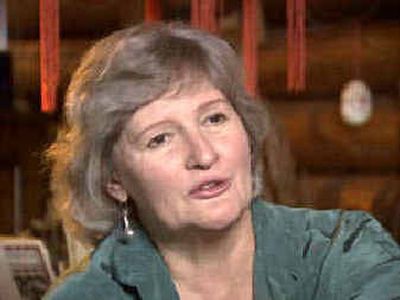Grammy nomination surprises Idaho musician

BOISE – Rosalie Sorrels has been making music for most of her 71 years, recording 23 albums plus 18 anthologies.
But it’s her most recent, titled “My Last Go Round,” that could bring her top honors.
The Idaho singer, songwriter and folk music luminary learned this week that the album is nominated for a Grammy for Best Traditional Folk Album.
It’s something she never expected to hear, Sorrels said, her voice raspy with emotion.
“You can’t practice how to feel when you have something like this happen,” Sorrels said. “I’m still having a hard time. I don’t know how to feel. I’m just delighted.”
If she wins, it won’t be Sorrels’ first award. She’s been recognized for her music and storytelling, and is listed in the Smithsonian as one of the founders of American folk music.
“It’s a very great honor to have your peers think that much of you,” she said.
Sorrels recorded “My Last Go Around” live in 2002 with a group of friends and fellow musicians, including Loudon Wainwright III, Peggy Seeger and Mitch Greenhill.
The concert at Sanders Theater on the Harvard campus was a three-and-a-half hour sellout. It was originally recorded by WGBH public radio in Boston before being mixed and edited by her record company Red House Records.
“I’m amazed that it got nominated. People don’t listen to a record all the way through anymore and you have to listen to all of it to know what it’s about,” Sorrels said.
For Sorrels, the album is about mortality, “but that doesn’t mean death.”
She wrote the title song, “My Last Go Around,” for her friend, writer Ken Kesey. It’s a rodeo term that means the last, best, hardest ride that happens at the end of the night after the crowd goes home.
“It’s not the end. It’s starting your last, best work. It doesn’t mean you’re through with anything. It means you take the time to decide what you’re going to do, then you do the best you can,” she said.
She has a connection with her audience that comes through on the recording, Greenhill said from his office in Santa Monica, Calif.
“She’s a musician’s musician, a singer’s singer with a high reputation among working musicians,” Greenhill said.
She’s also a longtime Idaho resident. Her dad built her Grimes Creek cabin on land purchased by her grandfather the year she was born.
“I feel like I grow right out of (the land), my house too. I’m like a part of the place (Idaho),” Sorrels said. “I’m so connected to where I am, I feel comfortable wherever I go.”
Sorrels has lived life on the front lines, said long-time friend Rocci Johnson. Born in Boise, Rosalie Stringfellow married Jim Sorrels at 19 and moved to Salt Lake City. She had five children over 10 years.
After her marriage ended, she turned to music. For the next 15 years she played coffeehouses and bars, large folk festivals and university concert halls. Along the way, she won respect from fellow performers such as Joan Baez and Pete Seeger. She became part of the structure of folk music, serving on the boards of Newport and New York folk festivals.
She finally moved back home to Idaho in 1983 to care for her mother. Then Sorrels suffered a ruptured brain aneurism in 1988 and breast cancer in 1998.
“What endears her to me more than anything is not her legacy or achievements or her unbelievable ability to rise from the ashes and survive insurmountable obstacles,” Johnson said. “It’s that she’s such an amazing human being who will do anything for anybody.”
The Best Traditional Folk Album category will be awarded at a separate ceremony during the 47th Grammy Awards on Feb. 13.